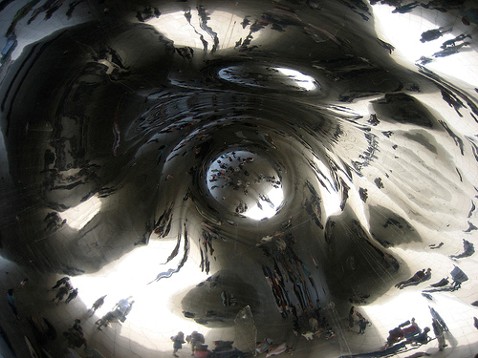In late July, an email came into the contact form in the Glow in the Woods email inbox. I respond to those requests when we get them. It was from a woman who hadn't lost a child, but whose best friend had. She thanked Glow in the Woods for giving her a starting point in the piece How to Help a Friend through Babyloss—a section where we hope to guide friends in the right direction. (We urge you to add your own experiences with what was and wasn't helpful in the comment section of that post.) She asked if we knew any blogs for the friends of babylost parents, or if we could direct her for support. I suggested she post the question in the forum, and I posted the question on my social media sites. But the depth of compassion and love for her friend was so palpable. Conversely, the compassion and love this community showed her strengthened my conviction that conversations about friendships and child-death need to continue happening.
She wrote again in December, thanking this community again, telling me where she and her friend found themselves now in their grief and their lives. I found her insights so valuable, I asked her to consider writing a guest post for Glow. In the earliest months of Glow in the Woods, Julia's friend Aite shared her thoughts on abiding. Today, I am honored to share Rachael's open letter to Glow in the Woods. —Angie
Dear Glow in the Woods,
You don’t know me, but I feel as if I know you. I have been a visitor, each and every day for the past seven months. I have read your stories—every word. I have followed those stories to your blogs to your spoken word videos. I am a lurker, because I don’t exactly belong. I am on the outskirts of this club, the one that you never wanted to join. I don’t know yet if I am the only one.
I am here because seven months ago, my best friend gave birth to a beautiful, full-term baby girl who had mysteriously slipped away from life a few days before she was born.
We had spent the weekend together, my friend and I. I had invited her to spend a few days with me and I relished every moment of it. We ate wonderful food, took dozens of pregnancy photos, listened to music, and reminisced. We floated for nearly two hours in an outdoor pool and I cackled uproariously at the sight of her schlepping her pregnant body into an inner tube. We sat in the warm July sunshine and excitedly discussed her impending motherhood. It is hard to believe how quickly life can turn its back on you, how fast everything can change, how tragedy strikes in the blink of an eye.
The doctor said that the baby died sometime during that weekend. I have drug myself to hell and back since the moment I heard the midwife say, tentatively, “Saturday, maybe.” Why didn’t I ask her if the baby had been moving? Why didn’t I put my hand to her belly, as I had done before? Well, because I was having fun. Because it wasn’t the last thing on my mind, it was something that had never been on my mind. Because in the world I used to live in, babies didn’t die. Oh, maybe in third world countries, or in cases of extreme prematurity, or later, to SIDS or something else, but not here, and not to my healthy, well-deserving friend and without any warning whatsoever.
Like many of you, I have desperately wished for the impossible—the chance to rewind time. I’m not asking to go back and retake a Biology exam that I wasn’t well prepared for. I’m not asking to go back to my teenage years, when I made all of the wrong choices. I’m asking to go back and try to save a life. And not just any life—the life of a child. This should be possible. My dreams try to convince me that it is. They play like a movie reel, where I am transported back to that weekend and I say, nonchalantly, “Hey, let’s go to the hospital and make sure everything is okay.” Or maybe even further back than that. To the day we spoke on the telephone and my friend told me that the baby had been quieter than usual. To when I said, “Babies do that when they’re getting ready to be born. It’s the calm before the storm!” I laughed when I said it. It was funny then. It’s not funny now. Not funny at all. Allowing myself to go back and think of that conversation immediately brings forth a feeling of guilt that is so ferocious I can feel it stinging my throat, like bile. It forces me to examine every moment of that weekend, to ask myself if anything I could have done or said would have produced a different outcome. My mind refuses to stop multiplying and examining an infinite amount of scenarios.
And then, there was the morning that she called me, just twelve hours after I had dropped her off from our weekend together. She was having contractions, but I didn’t believe it could be active labor just yet, and I was slow to get ready and drop off my children with my mother. She arrived at the birth center and an examination revealed that she was seven centimeters dilated. I did not make it to the birth center in time for her to hear the horrific news that there was no heartbeat. She was completely alone. The midwife had another laboring woman at the birth center, with no backup or assistance of any kind. So as a result, my precious, heartbroken friend was left to labor through transition with the knowledge that her baby had died. And she was all alone.
Meanwhile, I was driving like a bat out of hell, selfishly hoping that her labor had slowed down just long enough to allow me to witness the birth. A bright, sunny morning had transformed itself and as I drove, the clouds were darkening. Sparse droplets of rain became a torrential downpour, the entire sky opening up to warn me of what was to come. I didn’t see it then, refused to acknowledge that it could have been an omen. And so, I arrived at the birth center, stupidly full of giddy excitement. What transpired in the following hours all crowd together into one big, jumbled smorgasbord of shock, anger, fear, guilt guilt guilt, adrenaline, trauma, disbelief, empathy that became physically painful and so, so much sadness.
The next morning I had to force myself to say goodbye, to my friend, and to the baby that she still held in her arms. I was expected to resume life as normal, to come home to my four rambunctious boys and my schoolwork. It didn’t happen to me, after all. I could see it in the eyes of those who tried to comfort me. They said, “Just be grateful for the children that you have,” which is a condolence that not only assumed I was ungrateful to begin with, but tried to diminish the grief and loss I felt for a child that I wanted and expected to be a part of my life. I tried to sit with the boys and be present and shower them with love, but my mind was somewhere else, and their needs were too great. Life itself felt surreal, a thick fog lining the edges as I walked aimlessly through the supermarket, lost. I was consumed by grief, and by an insatiable need to fiercely protect and care for no one else but my friend. It was here, on Glow, that I found solace, and how I discovered that my own words could bring healing as I filled up pages, previously blank.
So now you know. I am here. Not with my own story, but as a keeper of someone else’s. A story I cannot forget-- one that, at first, tried to destroy me. A story that still begs to be heard, that unfolds each day and continues to reveal so much—about loss, about grief, about the power of friendship, and about healing. And it is through your stories that I have learned how to be present for my friend, how to begin to understand just a sliver of her experience, how to nod at my own guilt and then let it slide on past, and how to allow myself to remember and love a little girl lost, one rainy day in July.
—Rachael
If you are here, feeling like a lurker, consider this post an invitation to introduce yourself. Whose story are you keeping? And for the babylost, how does it feel to read of the grief of a friend? Do you have a friend who keeps your baby's story? Someone who bears witness? How does that relationship feel? Has your child(ren)'s death brought you closer or pushed you away?




